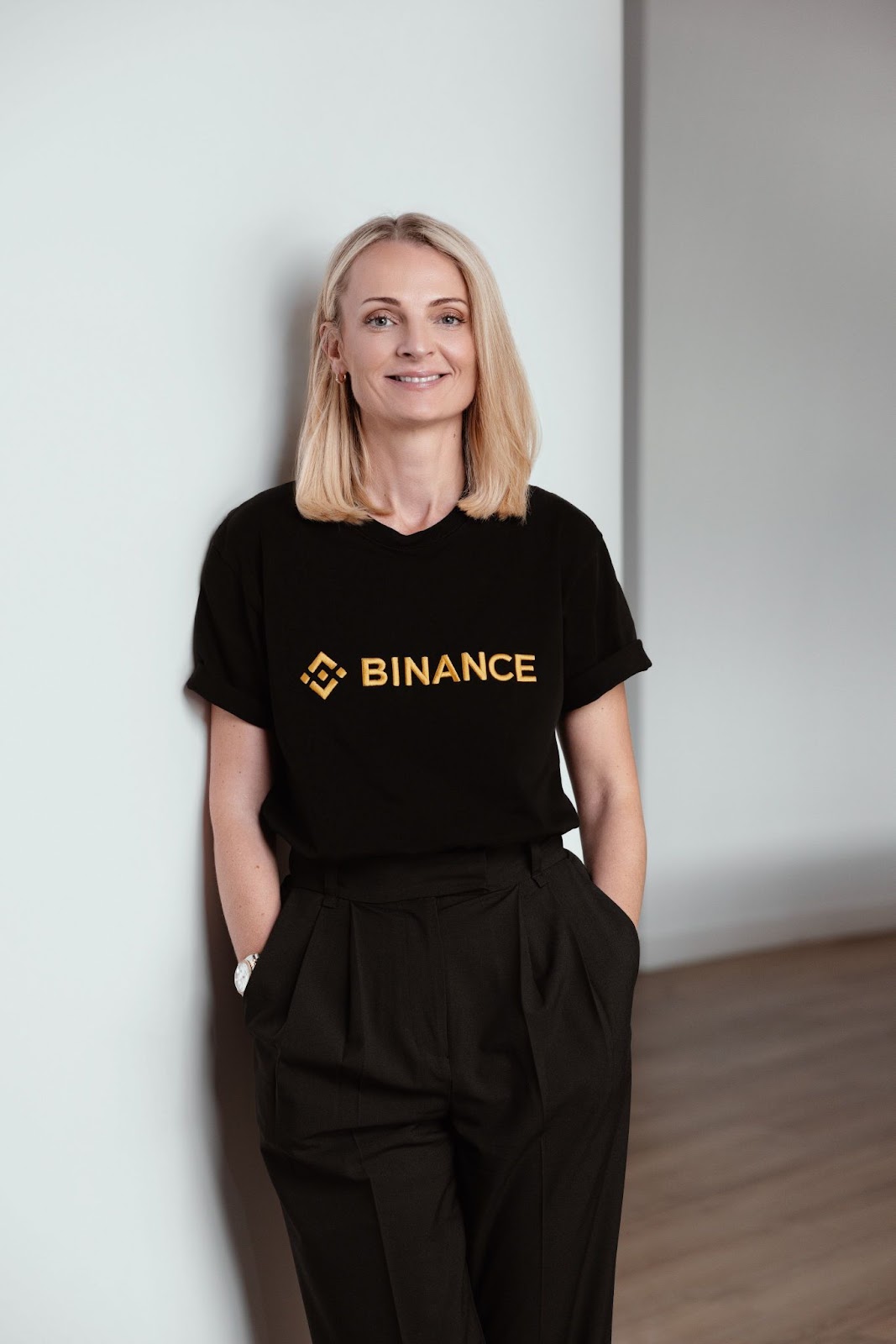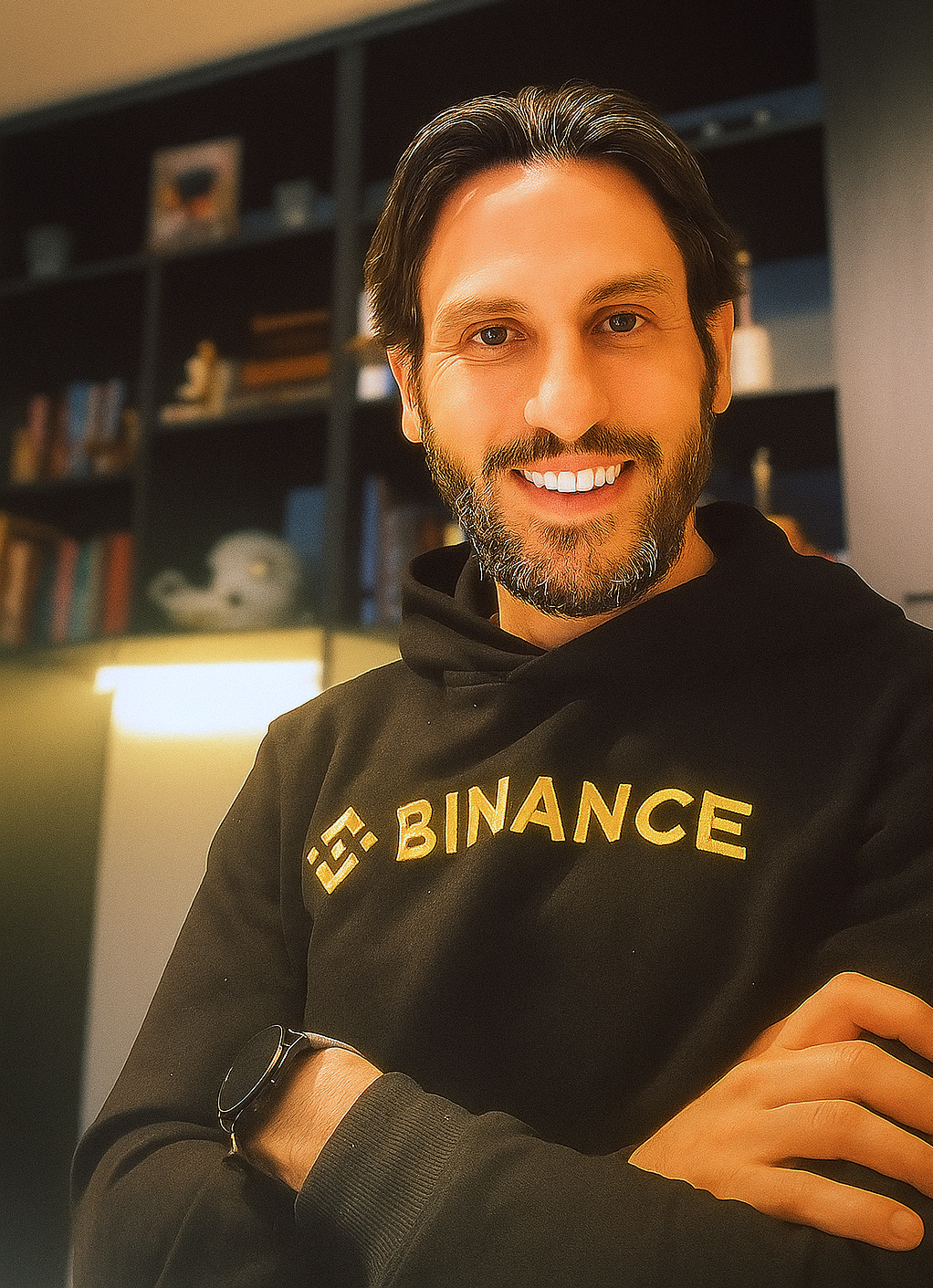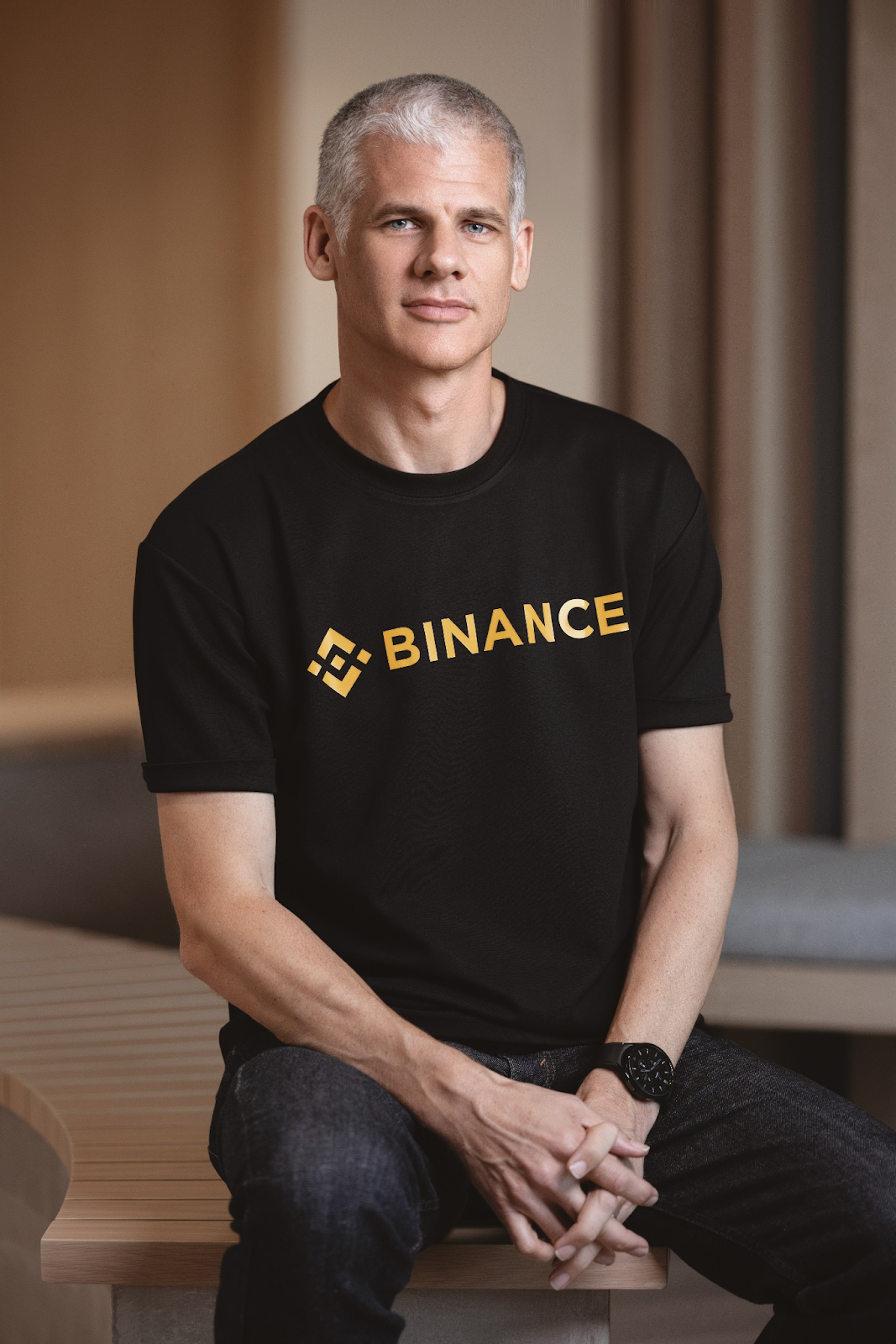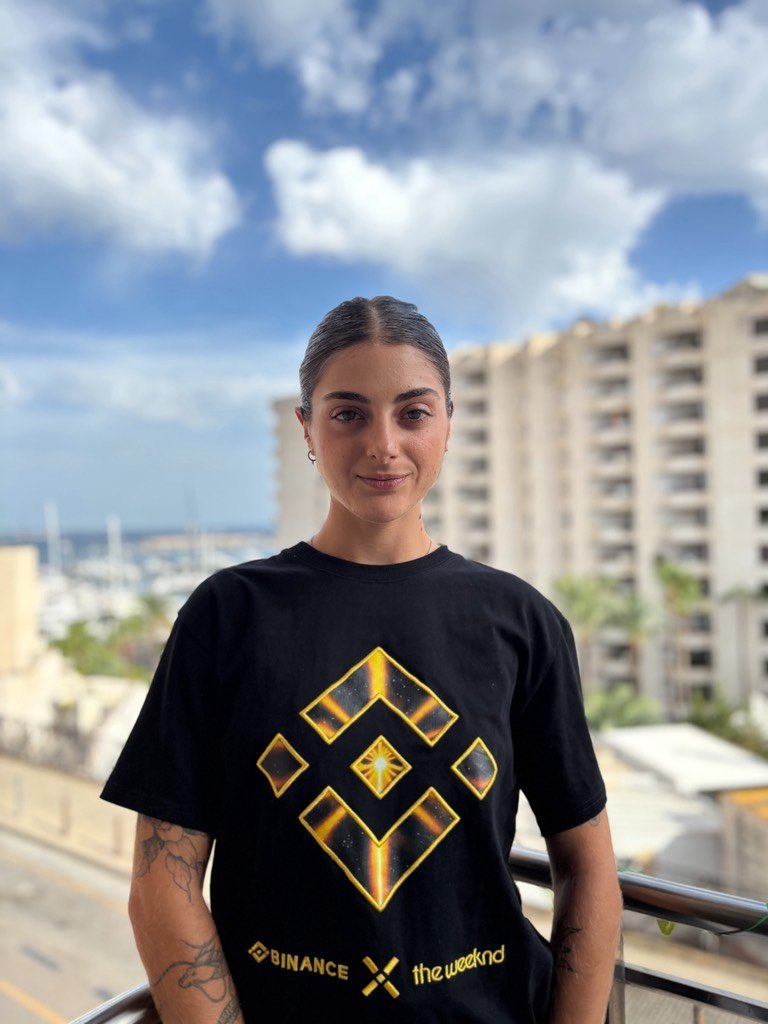In the latest edition of Binance Hot Takes and Hard Truths series, employees debate what fairness really looks like, whether in recognizing standout contributions or when balancing flexibility and accountability.
From promotions and healthy competition to time zone challenges, this Culture Chat reveals how fairness often requires trade-offs.
Binance builds a culture where teams share perspectives openly, so that fairness, autonomy, and performance can coexist.
At Binance, we believe workplace culture should be lived, not just stated. That’s why our regular Hot Takes & Hard Truths series explores what it’s really like to work here –through real stories, bold perspectives, and honest debate.
In this edition, we turned our attention to workplace fairness, a principle that can feel like a moving target in an environment moving at the speed of crypto. Five Binancians – Rachel Conlan (Chief Marketing Officer), Thomas Gregory (Vice President of Fiat), Bruno Chaves de Resende (Tax Director, Americas), Nazarena Ricciuti (Customer Relationship Manager), and Rianat Oyeleye (Financial Crimes Investigator Team Lead) – shared their unfiltered takes on some of the trickiest questions: When does recognition cross the line into favoritism? Is treating everyone the same really the fairest approach? And how do we balance autonomy, accountability, and work-life balance in a global team?
In a series of candid conversations, we presented them with “hot culture takes” and they swiped right (to agree) or left (to disagree), then explained their perspectives in their own words. Here’s what we learned.
How much credit should go to individuals versus the team as a whole? Recognition can motivate – but it can also create tension if people feel overlooked.

Rianat swiped left, reminding us that individual success rarely happens in isolation: “The strength of the broom lies not in the power of a single frond, but in the resilience of its united fronds.”
Thomas also swiped left: “These go hand in hand. It’s important to recognize individual performance and encourage people to strive for excellence – not hide in the team. But often, the whole is greater than the sum of its parts. As leaders, we need to recognize and reward both.”
At Binance, we aim to recognize both top performers and collective achievements, creating a balanced culture of fair recognition that values individual contributions without overshadowing the team.
Is money the ultimate incentive, or just one piece of the puzzle? For many, compensation matters – but so do purpose and growth.

Bruno and Nazarena both swiped right. Nazarena shared that promotions and raises can be especially meaningful early in your career: “When I started at Binance, I was in Customer Support. Being promoted after a few months gave me confidence to keep improving.”
Rachel and Rianat swiped left, noting that while financial rewards are important, they don’t tell the whole story: “Over time, you realize it can feel quite hollow if that’s all you’re chasing; real fulfillment comes from purpose, impact, and doing work you actually care about.”
Thomas also swiped left: “It’s great to be recognized after sustained success, but there’s more to life, both personal and professional, than climbing the ladder. Some people are perfectly happy where they are and do an incredible job. That deserves recognition too. We can reward people in many ways.”
Reflecting this range of perspectives, Binance takes a holistic approach to recognition – balancing compensation with growth, purpose, and meaningful impact.

Competition can push teams to excel — or quietly undermine trust. Striking the right balance is key.
Rachel swiped right, likening healthy competition to “sportsmanship” — a dynamic that encourages self-reflection and growth.
Thomas agreed: “The best teams and individuals perform under pressure and thrive on constructive challenge. But as a leader, you need to know where the bar is, and when pressure starts turning negative, step in before it goes too far.”
Nazarena and Bruno both swiped left, cautioning that too much rivalry can discourage openness and erode collaboration. “Teams need psychological safety to share, collaborate, and build together,” Bruno explained.
Rianat offered a middle ground: “I compete with myself. I set high standards and always try to be a better version of me. But internal competition can easily become toxic if not handled with care.”
At Binance, we aim to foster healthy competition that fuels innovation – not politics – and empowers every team member to contribute with confidence.
Does fairness mean treating everyone the same – or supporting people in the ways they need most? Leaders shared why identical treatment isn’t always the fairest approach.
Rachel swiped right, explaining that she treats everyone equally, regardless of the titles. “Early in my career, I was encouraged to speak up with CEOs and MDs, and that gave me confidence. I want the team to feel just as empowered.”

Bruno agreed, adding that a level playing field helps uncover who needs more support, and who’s ready to lead.
Thomas swiped right as well: “Few things hurt morale more than perceived favoritism. Fairness doesn’t mean treating everyone the same. Some people need more support, others need space. But consistent fairness is what drives high-performing teams.”
At Binance, fairness means adapting with intention: ensuring every team member has the support, trust, and clarity they need to do their best work.
Should autonomy be earned over time? Many agree that with a track record of results comes the right to work more independently.
Everyone swiped right on this take. Bruno shared that autonomy is often earned through a track record of results: “High-performing employees are usually more experienced and have already shown they can deliver. The more senior you become, the more freedom you should have.”
Nazarena added that seeing high performers with more flexibility can be motivating: “If I put in more effort, maybe I can reach that level too.”
Rianat explained that in her team, she avoids micromanaging anyone, whether high or low performers, but still expects accountability from everyone: “I trust high performers to manage their time and approach. For those who are still growing, I pair them with a mentor to help them develop.”
This perspective aligns with how Binance approaches autonomy: prioritizing trust and flexibility while maintaining clear standards and accountability.
Global teams never sleep, but does that mean you shouldn’t either? This sparked debate about flexibility and avoiding burnout. Rachel and Bruno both swiped right, noting that while sometimes you need to be flexible for critical work in a global company, it doesn’t mean your personal life should disappear.

Rachel shared that she encourages her team to take ownership of their time and protect their wellbeing: “I always encourage people to take time out and plan their holidays in advance. At the same time, there are critical moments when you do need to be available and responsive. But 24/7 doesn’t mean you have no personal life. I’m a big believer in carving out time for yourself for fitness and family time. I start every day with my rituals. Flexibility is what makes this possible.”
Nazarena and Rianat swiped left, emphasizing that constant availability isn’t sustainable or fair. “Being online 24/7 usually means you’re trying to make up for lost time, and that’s not sustainable,” Rianat said.
Nazarena shared her experience visiting her brother in Spain: “My leader adjusted my shifts for the time zone difference. That flexibility makes a huge difference.”
At Binance, we prioritize results over hours worked. Flexibility and teamwork help us stay efficient without sacrificing well-being, so everyone can bring their best, wherever they are.
Practicing workplace fairness at Binance isn’t a formula. It’s an ongoing effort: balancing fair recognition, employee autonomy, and work-life balance, even when it feels uncomfortable.
In our next article, we’ll look at another side of fairness: the courage to speak up when something isn’t working. Sometimes, raising an issue early is what keeps problems from becoming bigger and harder to solve. Stay tuned for How Binancians Are Fostering Accountability Through Radical Candor.
Ready to help build the future of finance at the world’s largest crypto exchange? Explore opportunities on our Careers page and bring your passion, ideas, and commitment to a workplace where fairness is never one-size-fits-all.